Ensuring Universal Access to Technical College Education
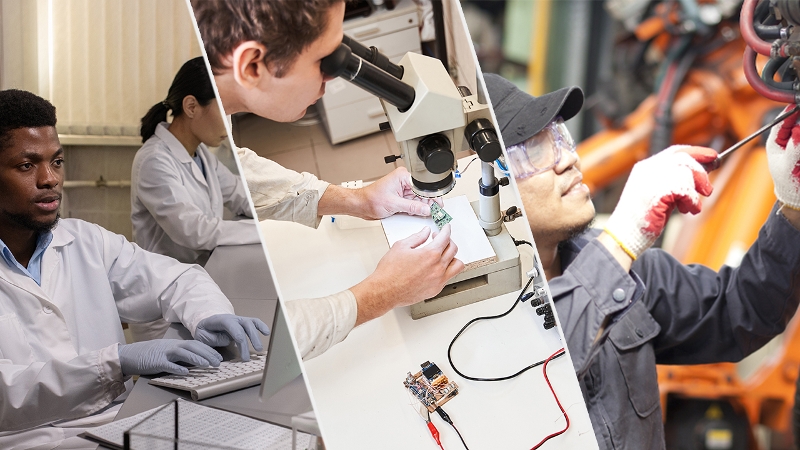
Manchester Community College Professor Dan Larochelle can’t recruit high school students interested in mechatronics fast enough to keep up with the feverish demand for expertly trained technicians, who specialize in working on electrical and mechanical systems that utilize sophisticated technology like robotics and automation.
“I had four companies call me last week with 40 open positions for mechatronics technicians,” says Larochelle, who serves as Department Chair for Advanced Manufacturing and Robotics at the Manchester, N.H., community college.
To attract the largest pool of candidates and ensure their success, Larochelle focuses on eliminating any learning barriers students may face—whether it’s a language barrier, physical or learning disability, or just a preferred way of digesting information. His efforts to better serve a wider audience include creating accessible and flexible educational materials that help facilitate coursework and play to the strengths of each individual student.
“Making our curriculum or content more accessible with a lot of the UDL (Universal Design for Learning) tools makes this job a little easier,” Larochelle says. “We’ve started designing and modifying curriculum to make it accessible for everyone.”
Universal Design for Learning and Technical Colleges Converge
The community college professor first learned about UDL and its applications in a technical educational environment a few years ago, while attending an artificial intelligence conference for the National Science Foundation. At the NSF conference, he met a former state Career & Technical Education director who worked for CAST, a nonprofit education research and development organization that created the UDL framework and guidelines in an effort to make learning more inclusive.
While initially developed to improve access to K-12 education, and for students with disabilities in particular, CAST has since expanded to work with higher education institutions and community-based teaching programs to help students of all ages and capabilities.
CAST provides on-the-ground services by collaborating with educators, schools, learning centers, and state education departments, as well as advocates for the UDL framework to influence legislative policies and raise funding for the research, design and implementation of innovative learning tools, and inclusive teaching approaches.
UDL is now included in all major federal education legislation covering every level of learning—from K-12, postsecondary coursework and special education, to workforce training and the National Education Technology Plan. Because of these policies, states and districts can receive financial incentives to incorporate the UDL framework into classroom design and use the guidelines to improve student accessibility.
Larochelle recently began working formally with CAST professionals through the AccessATE Project, which aims to make technician education at community colleges more accessible for every student. Mandated by Congress, the ultimate goal of the NSF-funded program ATE (Advanced Technological Education) is to supply qualified labor to industries in technical fields, such as manufacturing, environmental technology, automotive, biotech, and robotics.
AccessATE funding supports the work of the ATE program through strategic partnerships with CAST and a handful of other technology and accessibility-focused organizations. The grants assist two-year Institutions of Higher Education (IHE) by providing guidance, training, and accessibility tools to instructors like Larochelle who teach students pursuing a technical specialties degree.
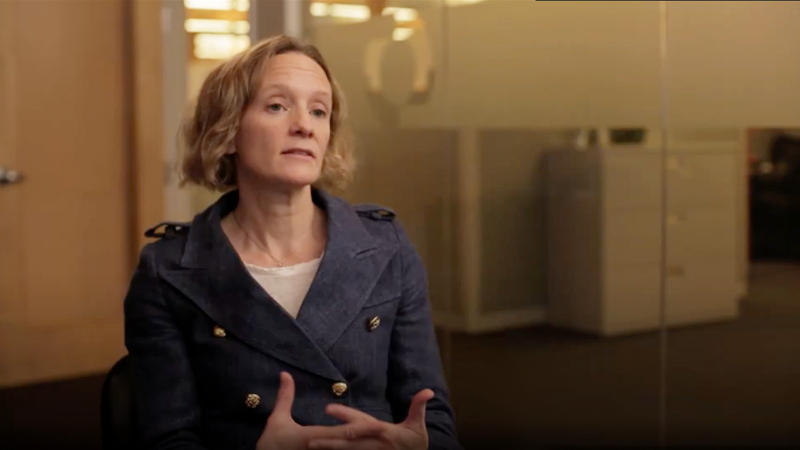
Sam Johnston, CAST Director of Postsecondary & Workforce Development
“Our focus is really on supporting high-quality design of learning and training [and] even workplaces, so all people have equal opportunities to engage, participate, build skills, and understand career pathways that are available,” says Sam Catherine Johnston, CAST Director of Postsecondary & Workforce Development, who’s serving as the lead Principal Investigator for the AccessATE research. “The UDL framework, based on research, allows instructors to proactively design for the differences that show up in our learning environments—even a single student can differ from one context to the next.”
The program’s goal includes ensuring the creation of a strong curriculum of science, technology, engineering, and mathematics (STEM) to build a technician workforce in the U.S. It operates primarily through community colleges, where STEM technician training most often takes place.
“Whether working in nano or microtechnology, biofabrication, or any of these very advanced areas of STEM, there are technicians who need fairly sophisticated STEM skills,” Johnston says. “The goal is to ensure these programs operating through the community are inclusive of all learners, but in particular learners with disabilities.”
CAST Helps Instructors Reach Diverse, Variable Learners
Through the AccessATE project, Johnston and her CAST colleagues guide instructors like Larochelle on how to design lessons and materials to reach diverse and variable learners.
Instead of giving a verbal lecture “as a sage on a stage,” Larochelle now shows demos on a smart board or plays videos to get his points across to his college classes, and offers students the choice to use a variety of formats for presenting information they’ve learned, such as creating a video versus demanding they write a paper or give a speech. He’s also revised his syllabus to include titles and tabs so that it’s easier to follow, especially when using a screen reader recently incorporated into the classroom as a result of his CAST consultations.
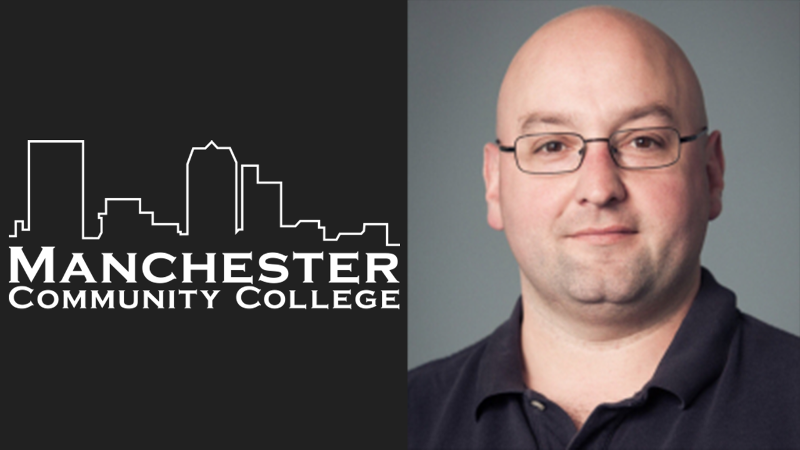
Dan Larochelle from Manchester Community College
“It’s really the tiniest, simple things we can do,” Larochelle says. “These were the types of things I learned with my involvement with CAST and AccessATE. It opened my eyes to how I can change things and introduced me to tools I just didn’t know about. [I realized] I’m not asking the right questions. It helped me see it’s as simple as that. I didn’t have to redesign anything—I just had to turn up my approach.”
Johnston points out technical school instructors she’s worked with already excel at serving students with a wide range of skill sets and making programs inclusive.
“They’re doing very good work and [they’re] amazingly creative at incorporating a lot of things to broaden participation,” she says. “We just bring an additional piece to enhance the way they think about and design their learning. It’s really already aligned with their vision for the work.”
Professor Gets Schooled on New Technology Tools
Larochelle recalls one student who spent up to six hours per online module—a task that should take under an hour to complete. When Larochelle asked the struggling student to walk him through his studying process, he learned that he wrote everything down from the lesson’s video and drew every picture that appeared on the screen—an ADHD coping mechanism the student learned early on to keep himself focused and better absorb the information.
Larochelle proposed printing out the presented materials and letting the student take notes on those drawings, which he says solved the student’s time-management issue but presented a new problem to tackle. Larochelle wasn’t familiar with how to access printable versions from the fairly new online module system he used to teach.
“That’s a tool I didn’t really know how to use, until I went to the vendor and asked what kind of accessibility tools they had,” Larochelle says. “They started letting me know about a lot of the stuff built right into the web page. Screen reading is a lot easier if you can use it on your phone or a tablet.”
Providing Accessible Educational Materials and Technologies
For Luis Pérez, his journey as a student with disabilities seeking accessible educational opportunities transformed him not only into an award-winning educator and published UDL technology expert, but also into an active advocate for the disability-rights movement and inclusive learning.
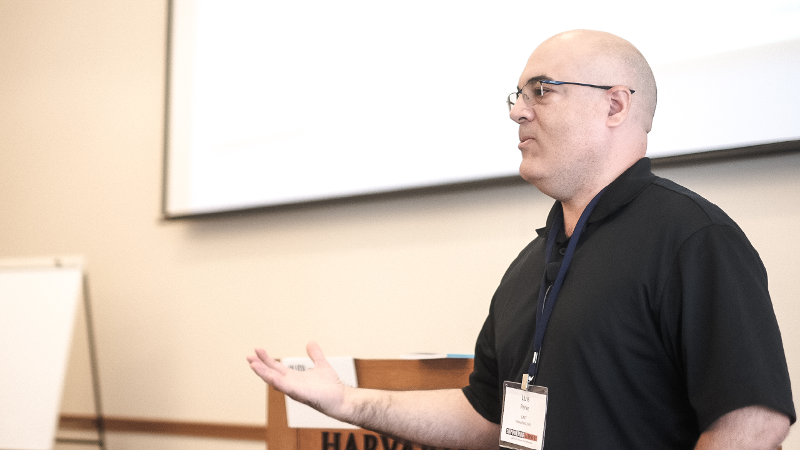
Luis Pérez, CAST Technical Assistance Specialist
Pérez, who’s legally blind due to a genetic condition, holds a doctorate in special education and a master’s degree in instructional technology.
“I personally know the impact of technology and accessibility, because I’ve been a student with a disability,” Pérez says. “I’ve seen firsthand the many, many benefits.”
Pérez now works on “both sides of the equation”—helping those like Larochelle searching for guidance and collaborating with producers of accessibility solutions—as a technical assistant specialist for CAST’s National Center on Accessible Educational Materials. Federally funded by the Office of Special Education Programs, the AEM Center’s mission revolves around improving the public awareness, availability, and usage of accessible materials to support learning.
“People who provide services to students will often come to us, because they want to know how to acquire accessible educational materials or how to create them,” Pérez says. “We provide access to tools and resources for teachers to create materials specific to the learner.”
Pérez serves as a CAST consultant for the AccessATE Project, bringing his understanding of accessibility assistive technology to help improve technical educators’ approach so they can successfully reach students with a broad range of capabilities.
“If we just follow a few best practices, then we can create materials where you may need a screen reader or text to speech,” Pérez says. “Someone may have a sensory disability, but by getting information well organized, you will improve understanding for everybody.”
Improving Understanding for All
As part of the AccessATE Project, Pérez and Johnston met regularly with the faculty at Pasadena City College to give feedback on workshop presenters and educate them on accessibility techniques they can use to improve their approach.
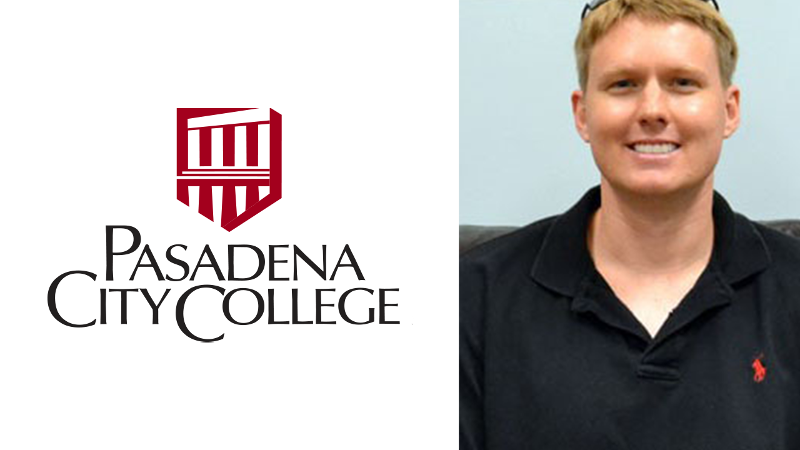
Jared Ashcroft from Pasadena City College
“We wanted to make our presentations more accessible and get mentoring on how to implement UDL, so I contacted CAST,” says Jared Ashcroft, manager of the Micro Nanotechnology Education Center at Pasadena City College. “Everyone really liked it. I think it helps make the presentations better. You learn how to present material in a more effective way, which is beneficial for everybody.”
Ashcroft says the school plans to utilize CAST’s technology resources as they implement an e-portfolio program for students in the coming year. He first reached out to CAST through AccessATE after being forced to teach remotely during the COVID-19 pandemic. He took a class to learn how to optimize his online teaching approach, which included UDL techniques.
“It’s vital to make your programs as accessible as you possibly can, from the very beginning, and not wait until after you develop the program and then come back to think about it,” Ashcroft says.
To build on the success of the AccessATE Project, Johnston plans to feature Pasadena City College and other technical education programs they’ve partnered with in a series of case studies to showcase how UDL enhanced their learning environment. She encourages AccessATE participants to share their UDL experiences with peers, so they see that improving accessibility isn’t complicated and so the methods get adopted by a wider audience.
“It’s better they learn it from someone else who’s also in their field or also at a community college,” Johnston says.
Overcoming Barriers to Attract More Technical Students
For Ashcroft and Larochelle, attracting a larger and more diverse group of talent to advanced technology programs requires lowering the barriers to learning their technical students often face. That’s the mission driving the AccessATE Project.
“Some of the students have ADHD, Apserger’s … they have a variety of challenges,” Larochelle says. “Those likely segregated them from certain opportunities, which they would be great at, but no one’s really given them a chance. Language can be another one.”
As an immigration sanctuary city, Manchester, NH residents speak more than 96 different languages.
“Students at the college who have a hard time with the English language, when you throw them in front of a CAD system or give them a physics problem, they understand the math inside out—they just can’t tell you about it,” Larochelle says.
They may have performed poorly in high school because of language limitations, but excel in science and math or possess naturally acute technical skills. Johnston explains that introducing a variety of learning options doesn’t just help students with physical or mental limitations.
“You can anticipate a student who’s hard of hearing will require the use of captions if you’re using a video,” Johnston says. “But, there are a whole bunch of other students who are also going to benefit from those captions you may not anticipate. Maybe they’re a single parent taking a community college course and dealing with children yelling in the background. By designing with more than just one idea of who the learner is and giving them choices, you create more avenues for accessing learning.”
At Pasadena City College, Ashcroft estimates underrepresented minorities make up around 65% to 70% of the student population. He says the school is working toward the goal of increasing successful retention of those students, while recruiting more students overall into technician education pathways—no matter what barriers they may face.
“You’re going to get better students when you open it up to a larger pool,” Ashcroft says. “You’re [also] going to end up with a lot of really exceptional students you might otherwise miss.”
Story by Red Pen Content Creation.
Help us make postsecondary learning more inclusive
CAST regularly partners with organizations in the public and private sectors to explore challenging questions in education. Our work is made possible by the generous financial support of foundations, corporations, government agencies, and individuals—all partners in the effort to make education more accessible, rewarding, and effective for all through Universal Design for Learning.
Explore more of CAST's work
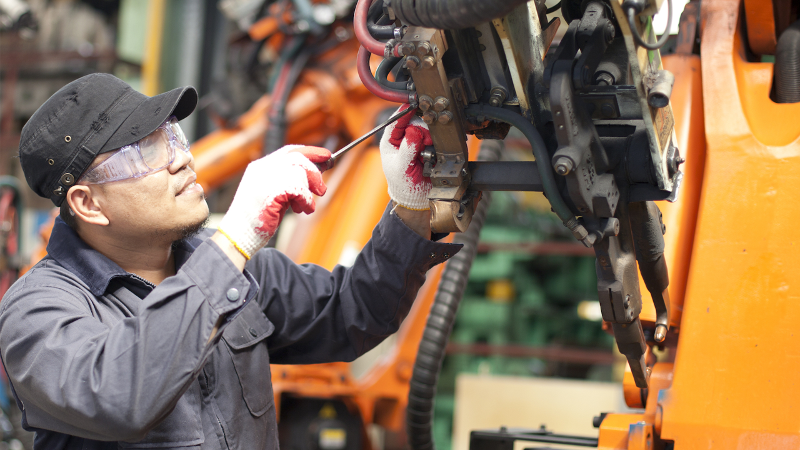
AccessATE: Accessibility for Community College Technician Education
Supporting community and technical colleges in developing and maintaining accessible materials and practices.
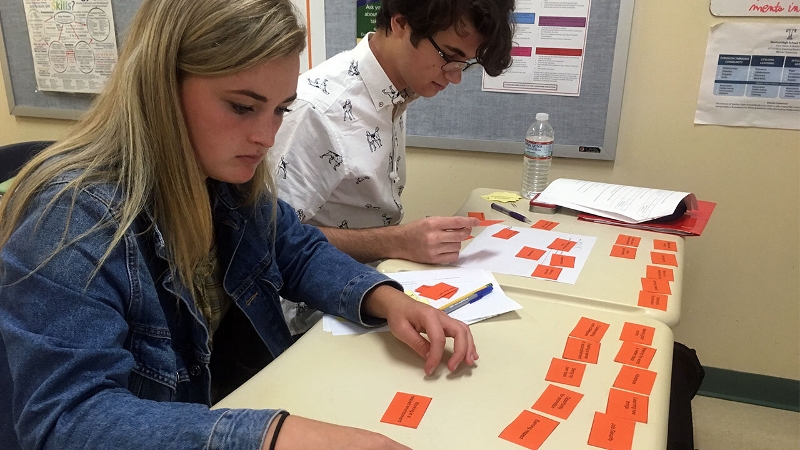
ARMI: Career Exploration Pathways into Advanced Manufacturing for Diverse Learners
We're building a more inclusive talent pool for futuristic fields as robotics, biofabrication, and hybrid electronics.
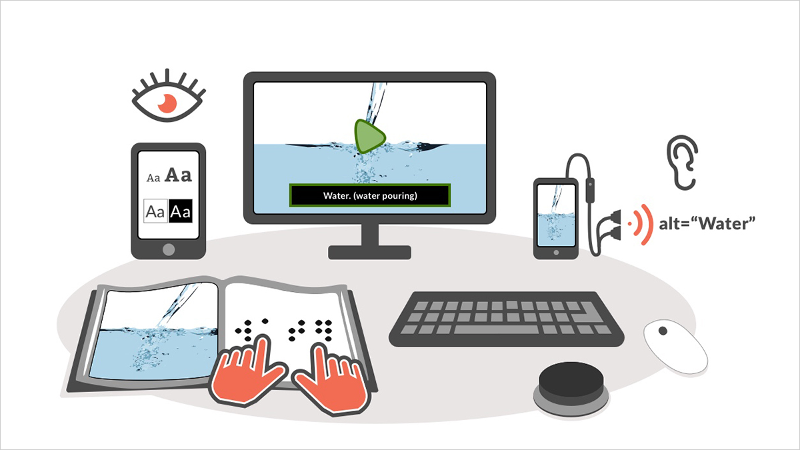
AEM Center: National Center on Accessible Educational Materials for Learning
Accessible materials are an essential component in UDL implementation. Learn how the AEM Center can help ramp up your accessible materials systems and practices.